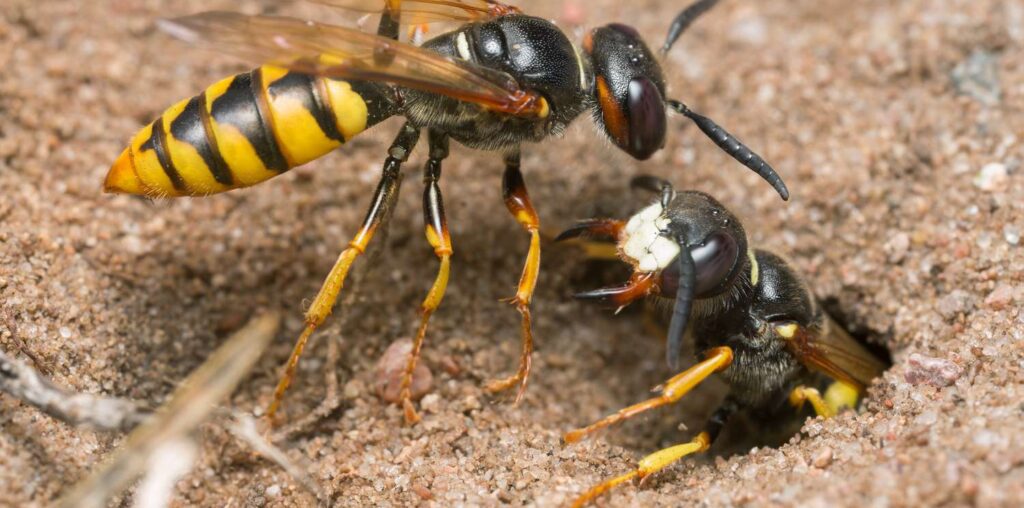Vancouver is a beautiful city known for its lush landscapes, moderate climate, and abundant greenery. However, this environment also makes it an ideal breeding ground for various pests, especially wasps. These buzzing insects can become a serious nuisance during the warmer months, often building nests around homes, gardens, and outdoor dining areas. Wasp stings can be painful and, for some people, even dangerous due to allergic reactions. As a result, effective wasp control in Vancouver is essential to ensure the safety and comfort of residents and visitors alike.
Understanding the Wasp Problem in Vancouver
Vancouver’s climate, with its warm summers and mild winters, creates a hospitable environment for wasps to thrive. Wasps become particularly active from late spring through early fall, with peak activity usually observed during the late summer. During this time, they search for food to sustain their colonies and can often be found hovering around garbage bins, sweet drinks, and protein-rich foods.
Common wasp species found in Vancouver include the Yellowjacket, Paper Wasp, and Bald-Faced Hornet. Yellowjackets are especially aggressive and are known to sting multiple times if provoked. Paper Wasps, while less aggressive, can still deliver a painful sting if they feel their nest is threatened. Bald-Faced Hornets, a type of aerial Yellowjacket, build large, football-shaped nests and can be extremely territorial. Understanding the behavior and habitats of these species is crucial in developing an effective control strategy.
Why Wasp Control Is Essential
While wasps do contribute to the ecosystem by controlling other insect populations and assisting in pollination, their presence near residential or commercial areas can pose a significant threat. Wasp stings are not only painful but can also cause serious allergic reactions, including anaphylaxis, which requires immediate medical attention. For families with young children, pets, or elderly individuals, wasp infestations can lead to constant anxiety and potential health risks.
Wasps are particularly drawn to areas with easy access to food and nesting spots. Outdoor patios, garbage bins, compost heaps, and even eaves of houses can serve as nesting locations. Once a nest is established, it can rapidly grow in size, housing hundreds or even thousands of wasps. This can make everyday outdoor activities like gardening, barbecuing, or simply relaxing outside quite dangerous. Therefore, prompt and professional wasp control is necessary to eliminate the risk.
Signs of a Wasp Infestation
Early detection of a wasp infestation can make the removal process much easier and safer. One of the first signs is the frequent presence of wasps flying in and out of a specific area. This could be a tree branch, wall cavity, or any sheltered structure where a nest might be hidden. In some cases, the nest itself may be visible, especially if it’s hanging from an exposed surface such as a tree or roof overhang.
Increased wasp activity around food, drinks, and garbage cans is another indicator that a colony may be nearby. Wasps are scavengers and are particularly attracted to sugary and protein-rich substances. If you notice them circling your outdoor dining area or compost bin frequently, it’s a sign they’ve set up residence close by.
Additionally, a low buzzing sound coming from inside walls, attics, or other concealed areas can point to a hidden nest. It’s crucial not to attempt to inspect or remove the nest on your own, as disturbing it can provoke an aggressive response from the colony.
DIY Wasp Control: Risks and Limitations
Many homeowners are tempted to handle wasp infestations on their own using store-bought sprays and traps. While these methods can offer some temporary relief, they rarely address the root of the problem. Over-the-counter sprays may kill a few individual wasps, but they do not eliminate the queen or destroy the nest. As a result, the colony continues to thrive and grow.
DIY nest removal is particularly dangerous. Wasps are highly territorial and will aggressively defend their nest if they sense it is under threat. Attempting to remove a nest without proper protective gear and experience can lead to multiple stings, which can be dangerous or even life-threatening. Additionally, nests located in high or hard-to-reach places, such as roof eaves or attics, present serious fall hazards.
There is also the risk of misidentifying the insect. Some people confuse bees with wasps, and while wasps can be exterminated, bees play a critical role in pollination and are protected in many areas. Removing bees without proper permissions can lead to legal consequences and ecological harm.
Professional Wasp Control Services in Vancouver
Hiring a professional wasp control service in Vancouver is the safest and most effective way to deal with an infestation. Pest control experts are trained to identify the species of wasp, locate the nest, and apply appropriate removal techniques. They use specialized equipment and protective gear to ensure the job is done safely and thoroughly.
Professional exterminators can access hard-to-reach nests and apply treatment products that are not available to the general public. These products are typically more potent and offer longer-lasting protection against re-infestation. Additionally, professionals will conduct a thorough inspection of the property to identify potential nesting sites and advise on preventive measures to reduce the likelihood of future problems.
Reputable pest control companies in Vancouver are familiar with local regulations and environmental guidelines. They ensure that wasp control methods are carried out in a way that is safe for people, pets, and the surrounding ecosystem.
Seasonal Wasp Control and Prevention
Preventing wasp infestations requires a proactive approach. One of the most effective strategies is to start early in the season, typically in the spring when wasps begin to build their nests. Removing small nests before they grow can prevent larger infestations later in the summer.
Keeping your outdoor spaces clean is another critical step. Make sure garbage bins have tight-fitting lids, and avoid leaving food or sugary drinks unattended. Sealing cracks and gaps in walls, roofs, and windows can also prevent wasps from entering and nesting inside structures.
Installing decoy nests can deter wasps from settling in an area, as many species are territorial and will avoid building near an existing colony. However, decoys are not a guaranteed solution and work best as part of a broader wasp management plan.
For businesses with outdoor dining spaces or open-air facilities, regular pest control maintenance is essential. These areas are particularly vulnerable to wasp activity and can suffer from customer complaints or even liability issues if someone is stung on the premises.
Eco-Friendly Wasp Control Options
With growing concerns about the environment and human health, many Vancouver residents are seeking eco-friendly wasp control solutions. Fortunately, many pest control companies now offer green alternatives that use natural or low-toxicity products. These methods are designed to minimize harm to beneficial insects and reduce the ecological impact of pest control efforts.
Eco-friendly solutions may include plant-based insecticides, physical nest removal, and non-chemical deterrents. While these methods can be slightly less aggressive than traditional extermination, they are often sufficient for managing wasp populations when applied correctly and consistently.
Choosing an environmentally conscious pest control service helps ensure that your wasp problem is addressed without compromising the health of your family or the local ecosystem.
Conclusion: A Sting-Free Summer Starts with Smart Wasp Control
Dealing with wasps in Vancouver is more than a seasonal inconvenience—it’s a matter of safety and peace of mind. Whether you’re a homeowner, a parent, or a business owner, taking steps to control wasps and prevent infestations is essential. While DIY solutions may offer short-term relief, professional wasp control services provide comprehensive and lasting protection.
By understanding the behavior of wasps, recognizing early signs of infestation, and enlisting expert help when needed, Vancouver residents can enjoy their outdoor spaces without fear of stings or swarms. Wasp control is not just about extermination—it’s about creating a safe, comfortable, and harmonious living environment for everyone.
Whether you’re looking to protect your family, your customers, or your property, investing in effective wasp control is a wise decision that pays off with a worry-free, sting-free summer.


